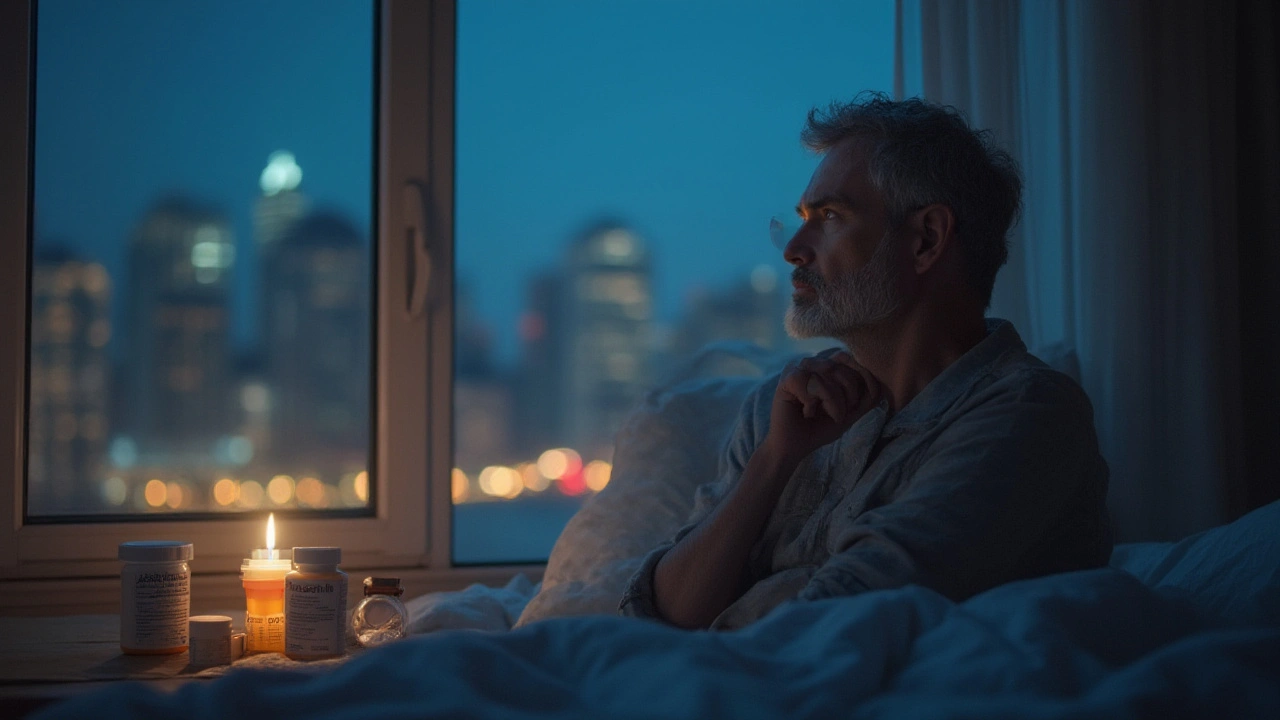Insomnia – Why You Can’t Sleep and How to Fix It
Ever lie in bed scrolling, watching the clock jump minute by minute, and wonder why sleep won’t come? You’re not alone. Insomnia is the most common sleep problem, and most people experience it at least once. The good news is that many everyday changes can make a big difference, and you don’t always need a prescription.
What’s Really Behind Those Sleepless Nights
Insomnia isn’t just “can’t fall asleep.” It can mean difficulty falling asleep, staying asleep, or waking up too early and not being able to get back to sleep. Stress, caffeine, irregular schedules, and bright screens are the usual suspects. Even a noisy bedroom or an uncomfortable mattress can keep your brain wired.
When stress piles up, your body releases cortisol, a hormone that tells you to stay alert. That same hormone can block the natural sleep‑drive that builds up during the day. Likewise, caffeine blocks adenosine, the chemical that makes you feel tired. One cup of coffee at 4 p.m. can still be buzzing in your system at 10 p.m.
Medical conditions matter too. Anxiety, depression, chronic pain, and thyroid issues can all trigger insomnia. If you notice that sleeplessness lasts more than a few weeks, it’s worth a chat with a doctor to rule out an underlying health problem.
Simple Changes That Can Help You Sleep Faster
Start with a bedtime routine that tells your brain it’s time to wind down. Turn off bright screens at least 30 minutes before bed, dim the lights, and try a calming activity like reading or gentle stretching. Consistency is key—go to bed and wake up at the same time every day, even on weekends.
Watch what you drink. Swap late‑day coffee for herbal tea, and keep alcohol low. Alcohol may make you drowsy at first, but it breaks down during the night and often leads to waking up several times.
Make your bedroom a sleep sanctuary. Keep it cool (around 65 °F or 18 °C works for most people), dark, and quiet. Blackout curtains, earplugs, or a white‑noise fan can block out distractions. A comfortable pillow and mattress also matter—if they feel lumpy or too soft, consider an upgrade.
If you can’t fall asleep after 20 minutes, get out of bed and do a low‑key activity—like folding laundry or listening to a calm podcast—until you feel sleepy. Staying in bed awake can train your brain to associate the mattress with frustration instead of rest.
When lifestyle tweaks aren’t enough, Cognitive Behavioral Therapy for Insomnia (CBT‑I) is a proven, medication‑free option. It helps you change thoughts and habits that keep you up. Many therapists offer online programs that guide you through the steps.
Finally, know when to seek professional help. If you’re consistently missing more than a third of your sleep, feeling exhausted during the day, or noticing mood changes, schedule an appointment. A doctor can check for sleep apnea, restless leg syndrome, or other conditions that need specific treatment.
Insomnia can feel overwhelming, but a few smart adjustments often bring back solid sleep. Try one change at a time, track how you feel, and give your body a chance to reset. Sweet dreams are just a routine away.
Does Atorvastatin Cause Insomnia? Science-Backed Insights on Cholesterol Drugs and Sleep
Does atorvastatin cause insomnia? Get the latest research, why it affects sleep, and tips for better rest while on cholesterol medication.
